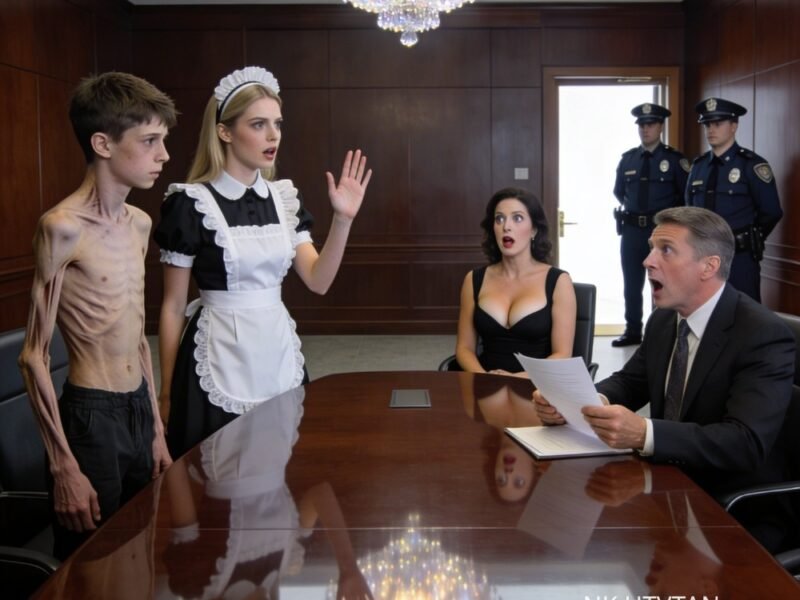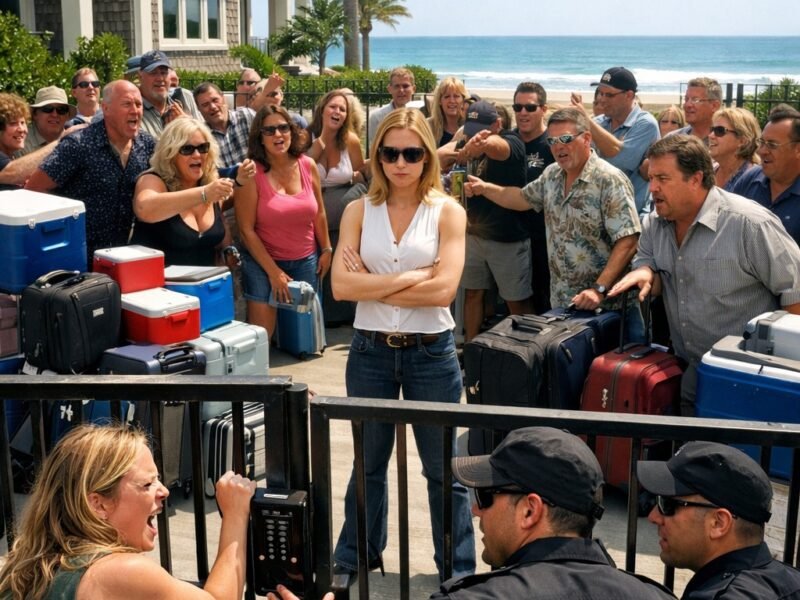On a crisp October morning in suburban Portland, 8-year-old Mia dragged a folding table to the sidewalk. Bald from chemotherapy and weighing barely 50 pounds, she could hardly lift the pitcher of lemonade her mom had made. But she had a job to do.
Her handmade sign read: “Lemonade – 50¢. Help me fight cancer.”
Sarah watched from behind the living room curtains, tears streaming down her face. Medical bills had crushed them. Their insurance had maxed out. She’d sold everything she could. But this? Watching her baby try to save herself with a lemonade stand? It was breaking her.
“Mom, I have to help,” Mia had insisted that morning, her voice thin but determined. “I’m not giving up.”
For three hours, Mia sat alone. A few kind neighbors stopped by, paying with fives and tens but waving off the change. Still, she’d only collected $47.
Then came the rumble.
A massive Harley-Davidson pulled to the curb—then another, and another. Within minutes, fifteen motorcycles lined the quiet residential street, engines thundering like rolling thunder. Neighbors peered out windows. Sarah’s heart raced.
The first biker off was Bear—six-foot-five, 280 pounds of leather, tattoos, and a beard that reached his chest. He looked like he could break a tree in half.
He walked up to Mia’s table and knelt down so they were eye to eye.
“What’s the special today, boss?” His voice was gravel-rough but impossibly gentle.
“Just lemonade,” Mia whispered. “Fifty cents.”
“Best price in town.” He smiled, and his eyes were kind. “But here’s the thing—my brothers and I, we’re not really thirsty. We heard about a young warrior who needed some backup.”
From his saddlebag, he pulled a worn leather pouch and placed it carefully on her table. Fourteen more bikers lined up behind him, each one adding their own envelope or bundle to the growing pile.
“You keep fighting, little warrior,” Bear said quietly. “We got your six.”
When they fired up their bikes to leave, they revved their engines in unison—a thunderous salute that shook the windows and brought every neighbor outside. Mia, overwhelmed and confused, waved with both hands.
Inside the leather pouch: $4,200 in cash and a note on club letterhead.
“From the Iron Knights MC. Real fighters recognize real fighters. Stay strong, Mia. You’re tougher than all of us combined.”
Sarah later learned the story. A quiet neighbor named Marcus—a club member—had noticed Mia’s stand during his morning coffee. He’d snapped a photo of her sign and brought it to that week’s club meeting. These men, many of them fathers and grandfathers, had sat in stunned silence.
Then, without a word, they’d emptied their wallets.
When a reporter later asked Bear why they did it, he shrugged, suddenly bashful. “We’re just a bunch of guys on bikes,” he said. “But that little girl? She’s the real hero. We just wanted her to know she’s not alone in this fight.”
Mia finished her treatment six months later. At her remission celebration, fifteen Harleys showed up, and Bear brought a leather jacket with “Honorary Iron Knight” stitched on the back—child size.
She wore it over her hospital gown, grinning ear to ear, surrounded by her unlikely army.
**Image is strictly for demonstration purposes


